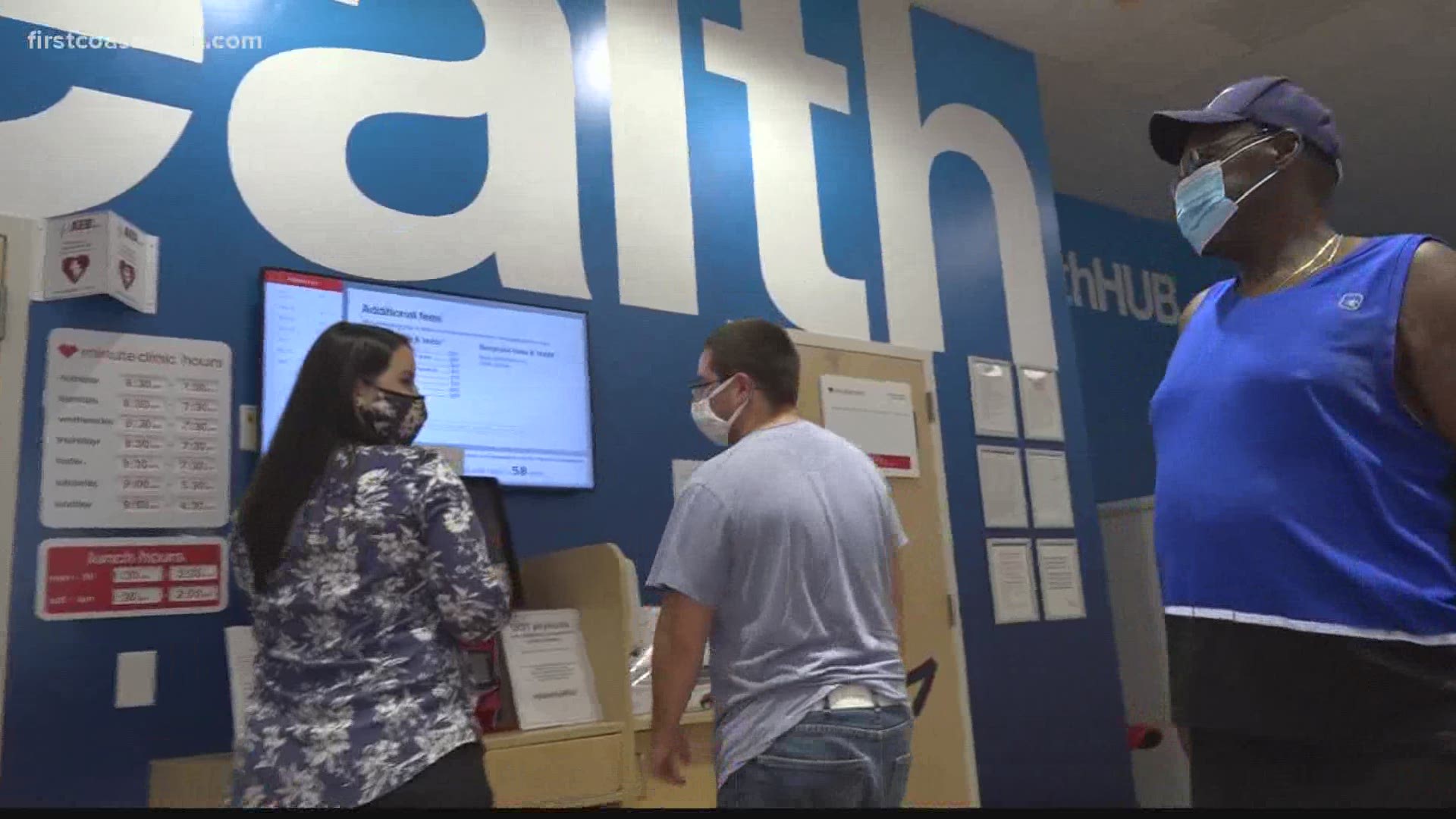JACKSONVILLE, Fla —
It’s time for your flu shot. Clinics are already starting to give them out, and experts say getting the vaccine is especially important during the pandemic.
It’s more than about protecting your health. Baptist Health Jacksonville epidemiologist Dr. Vincy Samuel says it’s about protecting our health care workers and hospital resources.
Flu season is October to roughly April. The Centers for Disease Control says millions of people get the flu in the U.S. every year. Since the flu is not a reportable disease in most areas of the U.S., the CDC explains that their numbers are estimates using a mathematical model.
From October 2019 to April 2020, the CDC says 39 to 56 million Americans had the flu and roughly 410,000 to 740,000 people were hospitalized. That’s the number we want to look at.
Hospital staff are already working hard to take care of COVID-19 patients. Flu season could be an added burden for them.
"We certainly want to be careful and reduce illness and preserve our health care resources," said Dr. Samuel. "So by getting a flu shot we can hopefully do that and reduce some of the illnesses that will be circulating in our community.”
Samuel says getting the vaccine is the first and best line of defense, but she says wearing masks and social distancing can help prevent the spread of the flu this season.
“Flu is a droplet-spread illness," Samuel said. "Our community at this point certainly knows how to protect themselves from droplet illnesses.”
The symptoms of the flu do overlap the symptoms of COVID-19: fever, cough, sore throat, runny or stuffy nose, body aches, headaches, and fatigue.
Samuel explains that the flu shot takes about two weeks for you to build up the immunity. Flu season starts in October so you want to get your flu shot before then if you can to give it time to kick in.
“Overtime your immunity can wane, however you want to get the flu shot before it starts circulating in the community," Samuel said.
She says if you should still get your flu shot even if it is past October.

